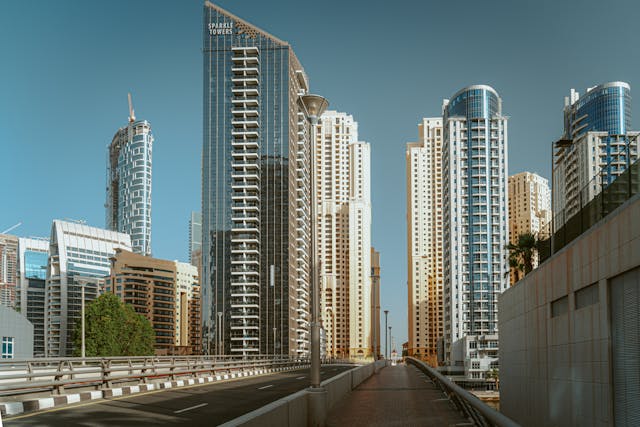Dubai, often hailed as a global hub of luxury, innovation, and culture, frequently sparks a debate among curious minds: Is it a city or a state?
Well, let’s unravel this intriguing question and delve into the unique political and geographical landscape of Dubai, situated in the heart of the United Arab Emirates (UAE).
Understanding Dubai’s Identity
To begin with, it’s essential to clarify that Dubai is neither a country nor a state. Instead, it is one of the seven constituent emirates that form the United Arab Emirates, a sovereign nation located in the Arabian Peninsula.
The UAE, established in 1971, comprises seven emirates: Abu Dhabi, Dubai, Sharjah, Ajman, Umm Al Quwain, Ras Al Khaimah, and Fujairah.
Dubai: The Jewel of the UAE
While each emirate holds its distinct charm and significance, Dubai shines as a beacon of modernity and progress. Renowned for its towering skyscrapers, bustling souks, and ambitious megaprojects, Dubai stands as a testament to human ingenuity and determination.
The City of Dreams: Dubai
Within the context of the UAE, Dubai is unquestionably a city. It serves as the economic powerhouse and cultural melting pot of the nation, attracting millions of visitors annually with its myriad of attractions and opportunities.
From the iconic Burj Khalifa, the world’s tallest building, to the palm-shaped islands of Palm Jumeirah, Dubai epitomizes grandeur and ambition.
Dubai’s Distinction: Not the Capital
Despite its global prominence, it’s crucial to note that Dubai is not the capital city of the UAE. That distinction belongs to Abu Dhabi, the largest emirate in terms of land area and the political nerve center of the nation.
However, Dubai’s significance transcends its administrative status, as it continues to shape the regional and global landscape through its innovative ventures and cosmopolitan allure.
Dubai: A Hub of Diversity
One of Dubai’s most remarkable features is its remarkable diversity. Home to a vast expatriate population hailing from over 200 nationalities, the city thrives on multiculturalism and tolerance.
This cultural tapestry enriches every aspect of life in Dubai, from its cuisine and festivals to its business practices and social dynamics.
Navigating Dubai’s Governance
While Dubai enjoys a considerable degree of autonomy in managing its affairs, it operates within the framework of the UAE’s federal system.
The federal government oversees matters of national importance, such as defense, foreign affairs, and fiscal policy, while each emirate retains authority over local governance and development initiatives.
Dubai’s Evolution: From Desert Oasis to Global Icon
The transformation of Dubai from a modest trading port to a global metropolis is nothing short of extraordinary. Fuelled by visionary leadership, strategic investments, and a relentless drive for excellence, the emirate has defied geographical constraints to become a symbol of prosperity and ambition.
Conclusion: Dubai’s Enduring Legacy
In conclusion, while the question of whether Dubai is a city or a state may elicit varied responses, one thing remains indisputable: Dubai’s status as a dynamic urban center within the United Arab Emirates. As a constituent emirate, Dubai embodies the spirit of innovation, enterprise, and cultural diversity that defines the nation as a whole.
Whether viewed through the lens of its towering skyscrapers or its vibrant cultural scene, Dubai continues to captivate the world as a beacon of possibility and progress within the Arabian Peninsula.
So, the next time you marvel at the gleaming skyline of this desert jewel, remember that Dubai’s true identity lies not merely in its geographical boundaries but in its enduring legacy as a symbol of ambition and resilience.

